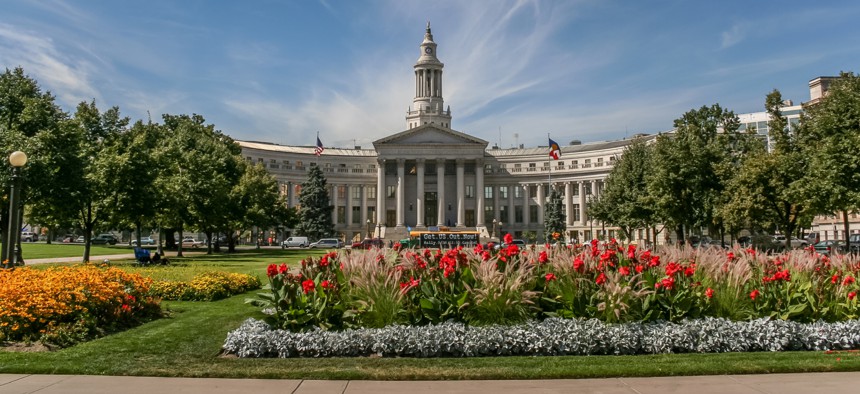What 3 U.S. Mayors Think Cities Will Be Like in 2030

The Denver City and County Building Shuterstock
The mayors of Baltimore, Boston and Denver weighed in on major issues their cities are facing at the U.S. Conference of Mayors 85th annual meeting.
MIAMI BEACH, Fla. — The mayors of Denver, Baltimore and Boston participated in a thought experiment of sorts on Sunday imagining the future of their cities 10 to 20 years from now.
Denver, for instance, is in the process of responding to and managing population growth and traffic congestion, said Mayor Michael Hancock, which requires thinking ahead about how to move people rather than vehicles.
Baltimore Mayor Catherine Pugh is only seven months on the job, but her administration has already launched an online portal soliciting resident feedback on issues like poor lighting in certain parts of the city.
“We haven’t planned around development,” said Boston Mayor Marty Walsh, during the Imaging Future Cities Today best practices forum at the U.S. Conference of Mayors 85th annual meeting.
For that reason, the city created the Imagine Boston 2030 working document in anticipation of a population surge to 700,000.
Transportation innovations are no good if they’re not accommodating everyone, from drivers to cyclists, Pugh said. All three cities are working to attract millennials.
“I want my constituents to interact with city government the same way they access the retailer they’re purchasing from,” Hancock said.
Denver’s Pocketgov app, which streamlines the process of reporting potholes, is one example of the city trying to meet residents where they already are, like their smartphones. Baltimore, meanwhile, put its permitting process online.
Walsh made the point that no city can pilot every innovation at once, but they also don’t have to. An autonomous vehicle pilot makes sense in Pittsburgh, which can in turn share its data with other cities, he said.
Climate change is another issue that will reshape cities by 2030. Last year, Denver experienced 50 percent less precipitation than any previous point in recorded history. Colorado’s capital city aims to reduce carbon emissions 80 percent by 2050.
“It’s those things that allow us to energize our teams, our stakeholders, our partners, the people who live in our cities,” Hancock said.
Baltimore, Pugh said, has found cooperative agreements to reduce emissions are “great economics” that reduce the city’s overall budget.
Walsh’s city was already drafting Climate Ready Boston when former President Obama signed the Paris Climate Agreement.
“We can’t depend on the federal government,” Walsh said.
Dave Nyczepir is a News Editor at Government Executive’s Route Fifty and is based in Washington, D.C.
NEXT STORY: Making the Business Case for Cities-Driven Climate Protections






